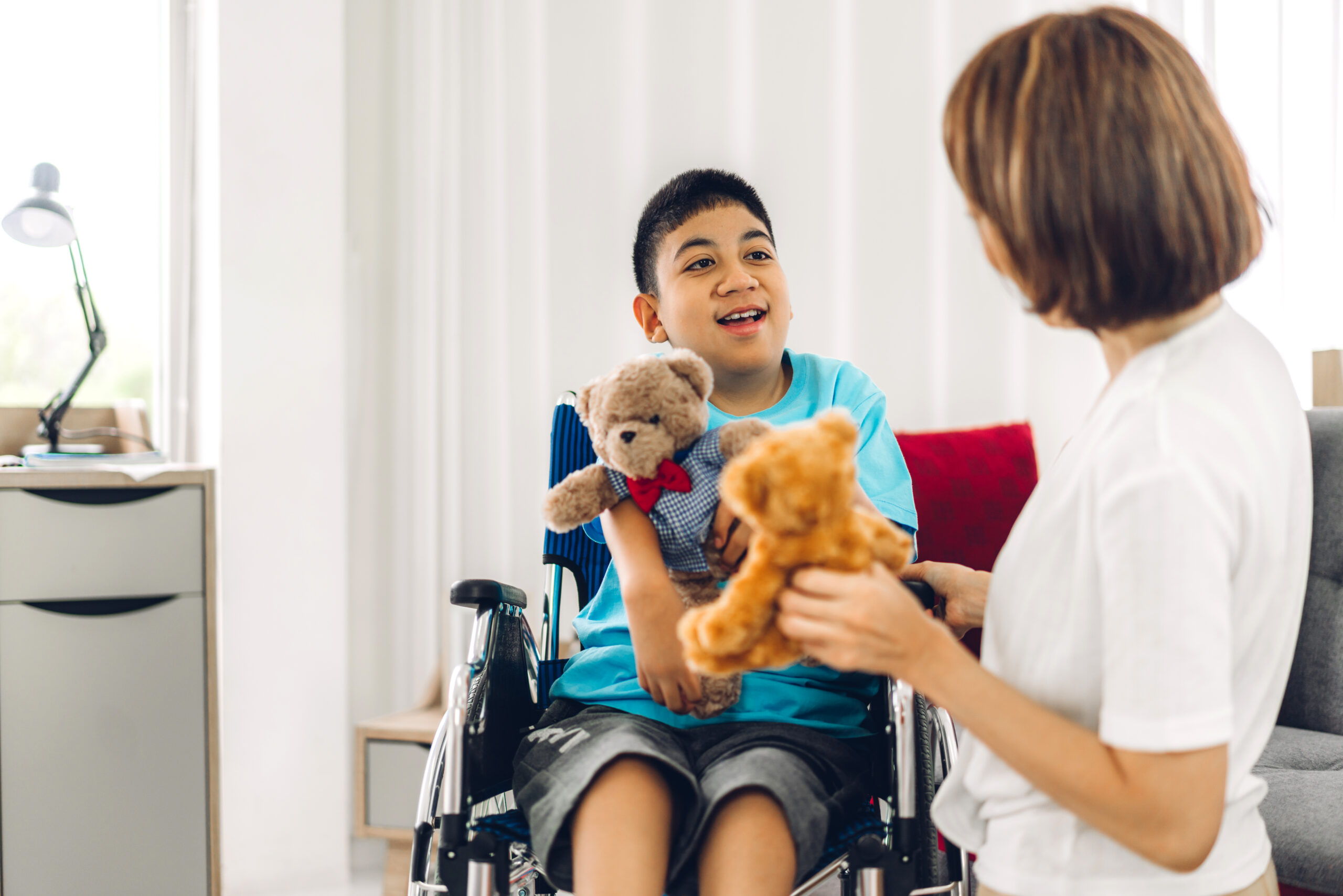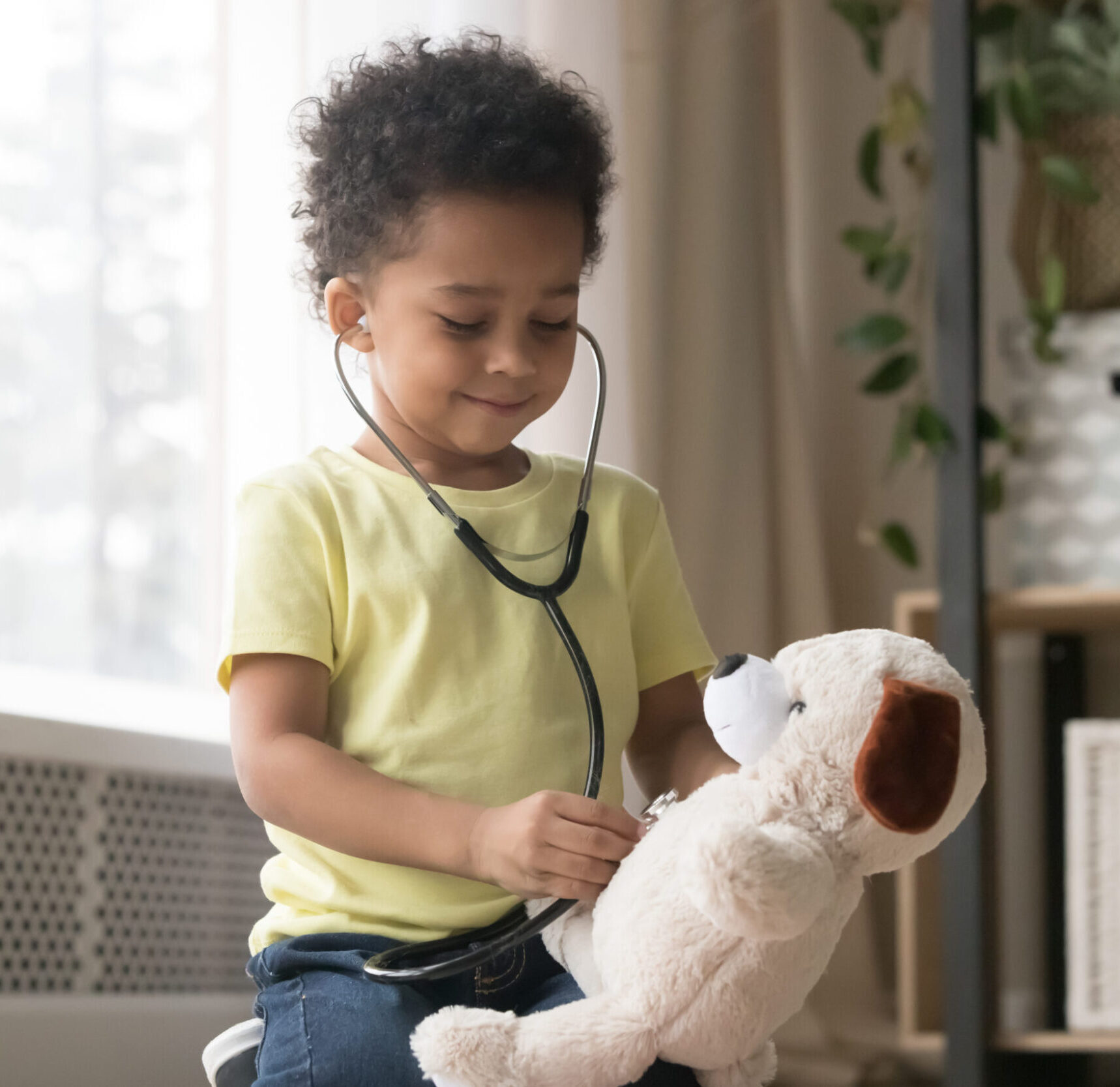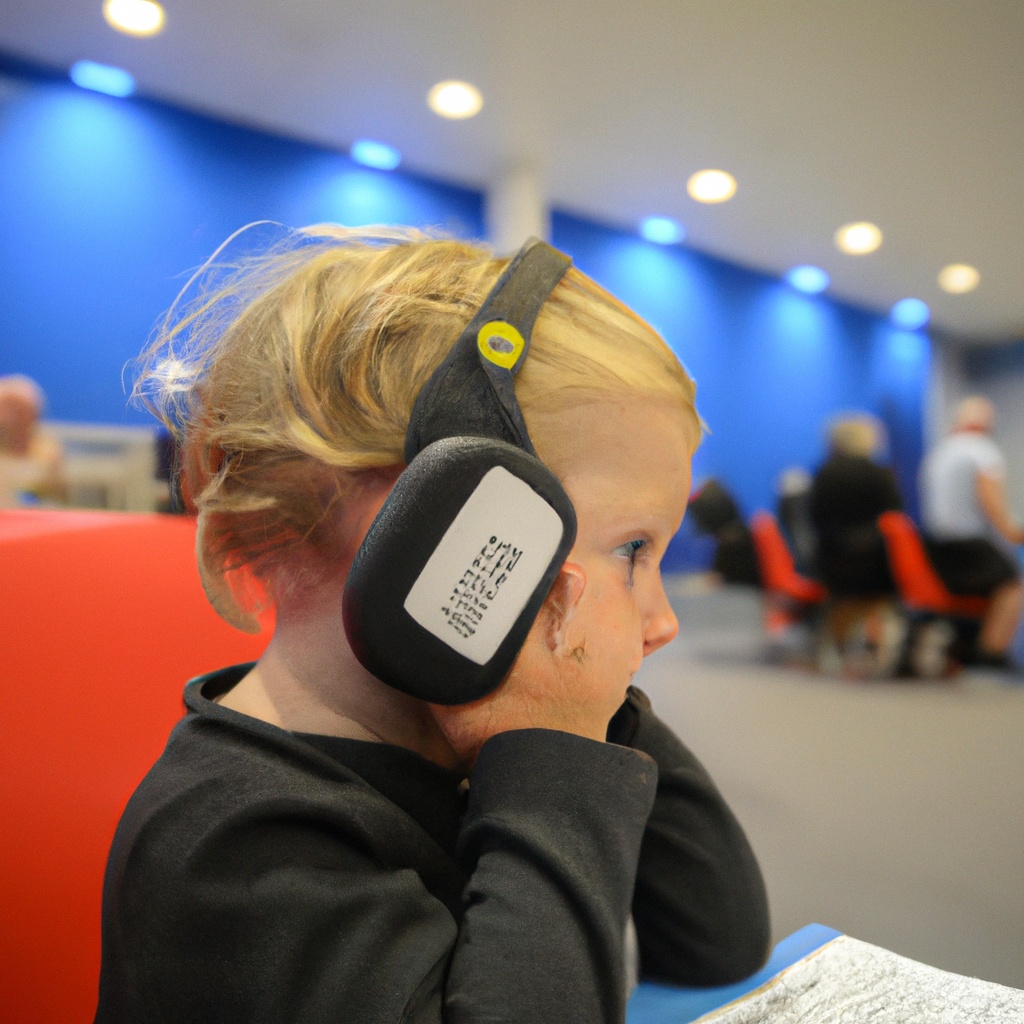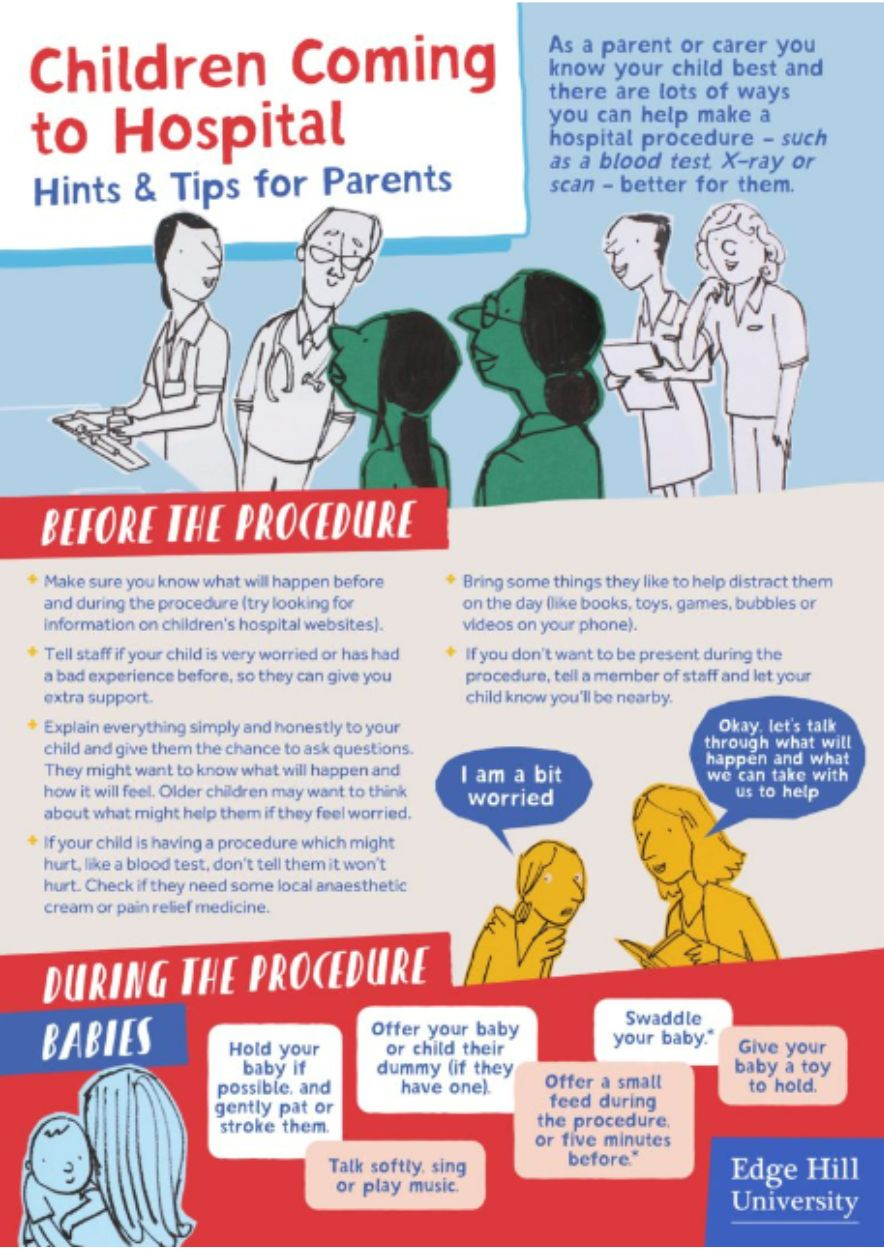This page provides tips and advice to help you prepare for outpatient appointments and how to support your child during tests and procedures.
JUMP TO
JUMP TO
Getting prepared…
What is the outpatient department (OPD)
An outpatient department (OPD) or outpatient clinic is the part of a hospital designed for the treatment of outpatients – babies or children who need to go to hospital for diagnosis or treatment, but do not at this time need to be admitted for overnight care in hospital. Outpatient departments offer a wide range of treatment services, diagnostic tests and minor surgical procedures.
Getting there – travel and parking
What to bring with you
What you need to bring will be different for every child and appointment. The list below includes some items you may need.
For All appointments
For your baby or child
For parents/carers
At the appointment
Parent Tip
Always check in at reception – Make sure to tell them if your child has sensory or additional difficulties that might make waiting or delays very difficult.
Useful Tips
Involving your child in their healthcare and appointments
Children and teens are often interested in being included in discussions about their health care. Every child will want different information and to be involved in different ways – some will want lots of information or involvement, some won’t and what they want can also change over time. Let your child lead the way in how much information they want and how they want to be involved.

Before leaving the appointment…
Make sure all of your questions have been answered and you have all of the information you need before you leave your appointment. Here are some questions you may need to ask:
Parent Tip
If you have appointments at multiple clinics, try and have one trusted person that you request all info be sent to such as your GP, Public Health Nurse etc.
General appointment tips
Top Tip
It is important to prepare your child for appointments and procedures so they know what to expect.
Make sure you read our information about how to support your child before and during appointments and medical procedures
Click here to learn more
Preparing and supporting your child
Before you go – Talking to your child about their appointment and tests and procedures
It is important to prepare your child for tests and procedures. The information below is general advice that might help you prepare your child. Every child is different and will want different information – Ask your child what they want to know and how they want to be involved.

Watch this video to hear from children, parents and professionals about how they prepare at home for tests or procedures
Shared with kind permission from What? Why? Children In Hospital
At the appointment – How to comfort and support your child during a test or procedure
The following section provides general advice about how to support your baby or child during a hospital procedure such as a blood-test or x-ray. This is general advice and you should always discuss your child’s individual needs with an appropriate member of staff.
The information in this section is shared with kind permission from Edgehilll University – Children Coming To Hospital
Supporting children of different ages during tests or procedures
What if my child has sensory difficulties or additional needs that can make appointments difficult for them
Healthcare settings such as the busy waiting rooms can be overwhelming environments for children with sensory challenges or additional needs. Here are some tips to help make your next trip easier!

Watch this video to hear from parents how they prepare their child with a learning disability for hospital
Shared with kind permission from What? Why? Children In Hospital
Useful resources and information
See below for a listing of useful resources to help you prepare your child for hospital and procedures.
Hospital Passport – symbols – Children
A free resource from www.widgit.com to help communicate your child's needs and preferences to healthcare professionals. Please note this resource is from a UK website.
Widgit/Symbol Flashcards and Booklets – Hospital admissions, appointments and procedures
www.Widgit.com provides a section with free symbol/widget based flashcards and booklets to help prepare children with additional needs for hospital appointments, procedures or staying in hospital. Please note this resource is from a UK website.
Helping your child during a procedure brochure
Helping your child during a procedure
This short document explains how you can support your child during a procedure and how to prepare at home before a procedure
Using play to prepare your child for hospital – Videos
Using play to prepare your child for hospital
These videos show play ideas to prepare younger children and young people with learning difficulties for different tests or procedures. Please note this resource is from a UK website.
Preparing a child with a learning disability for hospital – video
Preparing a child with a learning disability for hospital
This video shows interviews with parents of children with a learning disability. The parents share experiences and different ways they prepare their child for going to hospital, the doctor, the dentist or the optometrist. Please note this is resource is from a UK website.
HSE Health Passport App
HSE Health Passport - Apple Download | HSE Health Passport - Android/Samsung Download
The HSE Health Passport is now available as an App to support people with Intellectual Disability to communicate and express their unique needs when in a health care setting
Child friendly videos and information about hospital tests and procedures
whatwhychildreninhospital.org.uk/
This website provides lots of resources about going to hospitals, procedures and equipment. You can use the videos, information sheets and other resources to help you prepare your child and know what to expect before a procedure, appointment or hospital admission.


